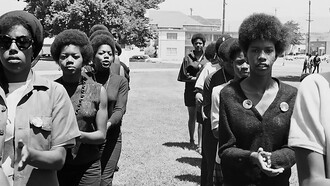From childhood, rules are imposed on us about what our role, our appearance or our moral qualities should be in society. "Do you play with dolls? But that's girly!" "You can't play football if you're not a boy." "Whining is for girls!" These are just some of the examples that we have inevitably heard at least once in our lives and that probably still sits in the back of our minds.
To think that the color pink belongs to the female sex and the color blue to the male sex, or that aggression and strength are purely masculine qualities while emotionality and romanticism are only characteristic of the female gender, means looking at the world through stereotypes — in this case gender stereotypes. I don't think there is a precise definition of what they are exactly. To me, they are all those beliefs handed down from generation to generation that have one purpose: to group individuals according to their gender, and eventually divide society, more than it already is.
For many people, these norms are supposed to simplify the reality around us, but in a way that is completely inaccurate. Gender stereotypes do not take the evolution of the social group they refer to into account, let alone the world around it; they do not consider the individuality of the individual and leave no room for personal choice.
For a woman, despite the many feminist struggles to achieve gender equality, still having to endure numerous personal and social deprivations is a great defeat. To be considered as the ‘second sex,’ the person subordinate to the man, driven by emotions and unable to work in any field other than a humanitarian one – for example as a teacher – who has to take care of the house and the children, definitely has its disadvantages. Often, in the case of men, gender stereotypes can even be the cause of so-called ‘toxic masculinity,’ a term increasingly used in recent years to refer to attitudes that tend to deny any form of emotionality or fragility and to praise toughness and violence, which are instead considered fundamental values for a man.
Gender stereotypes are often seen as advantageous by society because they are based on established and unchanging certainties, which in turn tend to give people security and preserve the differentiation between the gender with which we identify, and other genders. What is not considered, however, is that these stereotypes prevent us from growing both personally and emotionally. They limit our choices, opportunities and in most cases lead to discrimination.
That is why it is important to get rid of them. But how can we do this? Countering gender stereotypes is not easy. Their roots, in fact, go back centuries in traditions and cultures. Probably the most difficult – but also the most important – step is to identify these stereotypes. In my opinion, what could really bring about change is the education of children and adolescents. It is important that they understand the concept of equal opportunities, appreciate and above all promote gender diversity. Only in this way will it be possible in the future to live in a society that is not based on gender stereotypes, that is free of labels and in which diversity is appreciated and promoted rather than denied.















